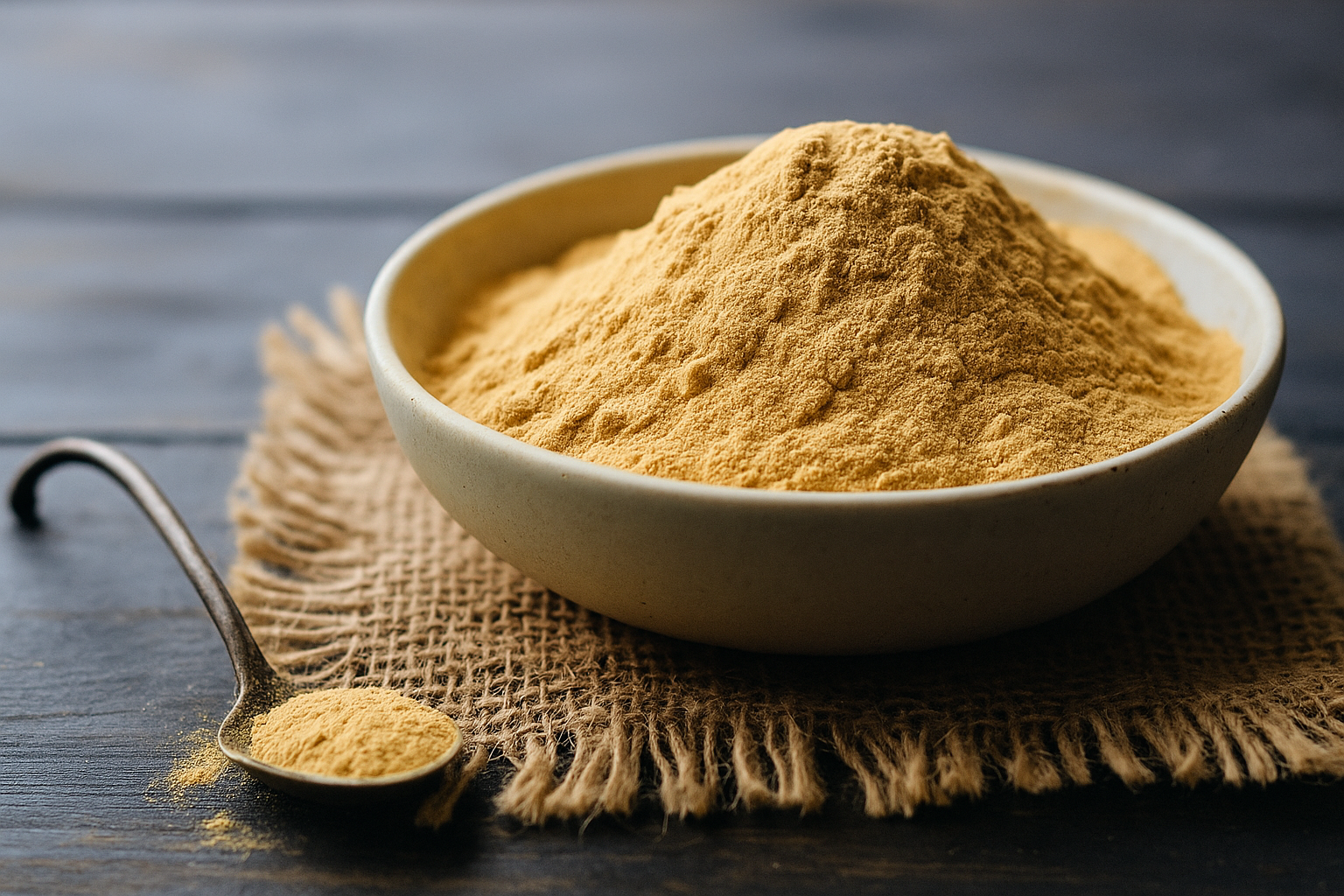A Daily Ritual with a Long-Term Payoff?
For many, the morning cup of coffee is an essential start to the day. But what if this cherished ritual could also contribute to a longer, healthier life? A landmark 30-year analysis, primarily led by Harvard T.H. Chan School of Public Health researchers and presented at the recent NUTRITION 2025 conference, suggests that moderate caffeinated coffee consumption may play a meaningful role in women’s healthy aging. This isn’t about fleeting energy boosts; it’s about a classic brew potentially supporting well-being for decades to come.
Note: These findings were presented at NUTRITION 2025 and are awaiting full peer-reviewed publication. While promising, they should be considered preliminary.
The Study at a Glance: Unpacking the Research
What Researchers Did: Researchers delved into extensive data from 47,513 women aged 45–60 who participated in the renowned Nurses’ Health Study (NHS) from 1984 to 2016. The NHS is one of the largest and longest-running prospective investigations into the factors influencing women’s health, providing invaluable insights over decades. Dietary habits, including all sources of caffeine (coffee, tea, decaffeinated coffee, and soda), were meticulously assessed through validated questionnaires over the three decades.
Defining “Healthy Aging”: A Rigorous Standard Participants were rigorously categorized as “healthy agers” if, by age 70 or older, they met comprehensive criteria:
- Avoided 11 major chronic diseases: This included serious conditions like heart disease, type 2 diabetes, cancer, and stroke.
- Maintained robust physical strength and function: Indicating good mobility and independence.
- Sustained sharp mental health and cognition: With no significant memory issues or cognitive impairment.
By 2016, a substantial group of 3,706 women successfully met all these stringent criteria for healthy aging.
Caffeinated Coffee: A Unique Connection to Longevity
The Caffeine Link: The average caffeine intake among these “healthy agers” was approximately 315 mg/day, with over 80% primarily sourced from caffeinated coffee—equating to about three 8-ounce cups. The findings showed a dose-response relationship: for every additional ~80 mg (roughly one 8-ounce cup) of caffeinated coffee consumed daily, there was a 2–5% increase in the likelihood of healthy aging, with benefits observed up to a ceiling of about five cups.
Drink-Specific Findings:
- Bphysical activityeneficial: Only caffeinated coffee demonstrated a positive, statistically significant link to healthy aging.
- Neutral: Decaffeinated coffee and tea showed no significant association with healthy aging in this study.
- Negative: Conversely, caffeinated sodas were strongly associated with a negative outcome. Each glass of soda was linked with a significant 20–26% lower chance of healthy aging, likely due to high added sugar content and lack of beneficial compounds.
Why Coffee Stands Out: Beyond Just Caffeine
Coffee’s unique impact extends beyond its caffeine content. It’s a complex beverage rich in numerous bioactive compounds, particularly antioxidants such as chlorogenic acids, flavonoids, and phenolic acids. These compounds are believed to:
- Reduce inflammation: A key driver of many chronic diseases and aging processes.
- Enhance vascular function: Supporting healthy blood flow and cardiovascular health.
- Support glucose metabolism and brain health: Potentially contributing to reduced risks of type 2 diabetes and cognitive decline.
- Suppress the mTOR pathway: A cellular pathway linked to aging and disease, suggesting coffee’s potential role in slowing cellular aging by regulating cell growth and metabolism.
While tea and decaffeinated coffee also contain some beneficial compounds, their specific composition, typical consumption levels, or the synergistic effects of compounds in coffee in this study may not have provided the same potent combination of effects as caffeinated coffee. Colas, laden with added sugars, carry well-documented links to obesity, metabolic disorders, and other health issues, explaining their inverse relationship with healthy aging.
Real-World Recommendations: Integrating Coffee into a Healthy Lifestyle

How Much Coffee is Healthy? The most promising results were observed with 2–4 cups of caffeinated coffee per day (approximately 200–315 mg caffeine). This aligns well with current safety guidelines: the U.S. Food and Drug Administration (FDA) and European Food Safety Authority (EFSA) generally consider up to 400 mg/day of caffeine safe for most healthy adults. Pregnant women, however, should limit their intake to ≤200 mg/day.
Lifestyle Integration: Coffee is Not a Magic Bullet It’s crucial to understand that coffee’s benefits, while significant, are modest and work best within the context of a healthy lifestyle. It should complement, not replace, foundational health habits:
- Regular physical activity
- A balanced, nutrient-rich diet
- Complete avoidance of tobacco products
- Adequate, quality sleep
- Consistent mental stimulation
Important Cautions & Limitations
While these findings are exciting, it’s vital to acknowledge the study’s limitations:
- Observational Design: This study identifies associations, not causation. It cannot definitively prove that coffee causes healthy aging, only that there’s a strong correlation. Other unmeasured factors could be at play.
- Self-Reported Data: Dietary intake was based on participant questionnaires, which are subject to recall bias.
- Demographic Specificity: The Nurses’ Health Study primarily involved white, educated female nurses. While the NHS is robust, the generalizability of these findings to more diverse populations (men, other ethnicities, different socioeconomic backgrounds) may be limited and warrants further research.
- Preliminary Findings: As noted earlier, the results were presented at a scientific conference (NUTRITION 2025) and have undergone initial expert evaluation, but the full paper is still awaiting rigorous peer-review and publication in a scientific journal. As such, these findings should be considered preliminary.
Beverage Comparison for Healthy Aging
| Beverage | Caffeine per serving | Connection to Healthy Aging |
|---|---|---|
| Caffeinated Coffee | ~80 mg/cup | ✅ Positive (2–5% / cup up to 5) |
| Decaf Coffee | ~3–5 mg/cup | ➖ None detected |
| Tea (green/black) | ~20–40 mg/cup | ➖ None detected |
| Caffeinated Soda | ~30–50 mg/serving | ❌ Negative (–20% to –26%) |
What Experts Say
Dr. Sara Mahdavi, the lead researcher from Harvard T.H. Chan School of Public Health and the University of Toronto, emphasizes: “Moderate coffee intake may offer some protective benefits when combined with other healthy behaviors such as regular exercise, a healthy diet, and avoiding smoking. While this study adds to prior evidence suggesting coffee intake may be linked with healthy aging, the benefits from coffee are relatively modest compared to the impact of overall healthy lifestyle habits and warrant further investigation.”
Registered dietitians further caution against excessive caffeine intake, which can lead to side effects like insomnia, anxiety, and heart palpitations, particularly for individuals genetically sensitive to caffeine. Individual responses to caffeine vary significantly due to variations in genes like CYP1A2, which affect how quickly caffeine is metabolized.
5 Actionable Strategies for Coffee Lovers
- Enjoy 2–4 cups of caffeinated coffee daily: Ideally in the morning to early afternoon to avoid sleep disruption. (An 8-ounce cup is a good benchmark.)
- Keep it clean: Limit added sugars, artificial creamers, and flavorings. Opt for black coffee or minimal, natural additives.
- Prioritize holistic health: Remember that coffee enhances, but does not replace, regular exercise, nutrient-rich meals, avoidance of smoking, and adequate sleep.
- Know your body: If you experience anxiety, insomnia, have high blood pressure, or are pregnant, consult a doctor regarding your caffeine intake. Your personal tolerance is key.
- Diversify your antioxidants: While coffee is a good source, ensure your diet is rich in other antioxidant-packed foods like fruits, vegetables, and whole grains.

Key Takeaways
- Moderate caffeinated coffee intake (around 315 mg caffeine/day, or 2-4 cups) is linked to a higher likelihood of healthy aging in women, characterized by fewer chronic diseases and better mental and physical functioning.
- These findings are based on a large observational study and do not establish cause-and-effect; they also do not apply to decaf, tea, or soda, which showed neutral or negative associations.
- Optimal benefits appear to be within the 2-5 cups per day range, well within the generally accepted safe limits for most adults.
- Coffee is one piece of the puzzle; it should complement a comprehensive, healthy lifestyle.
Putting It All Together: Coffee and Longevity
For women who enjoy and tolerate it, incorporating 2–4 cups of caffeinated coffee into a well-rounded, healthy lifestyle may modestly enhance your chances of aging well. Stay informed about emerging research, drink thoughtfully, and continue to prioritize exercise, nutrition, quality sleep, and mental engagement as cornerstones of your long-term well-being.
Coffee lovers, let this research serve as a comforting confirmation that your daily brew could be a positive habit, but always remember it’s one delicious piece of a much larger, healthier aging puzzle.


